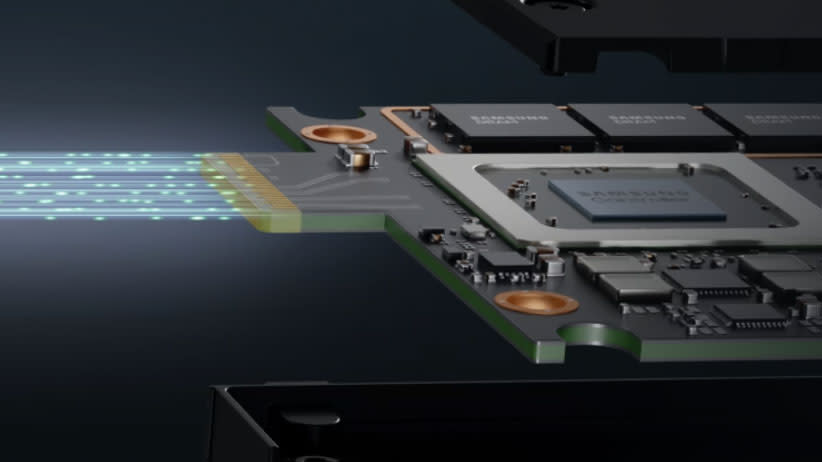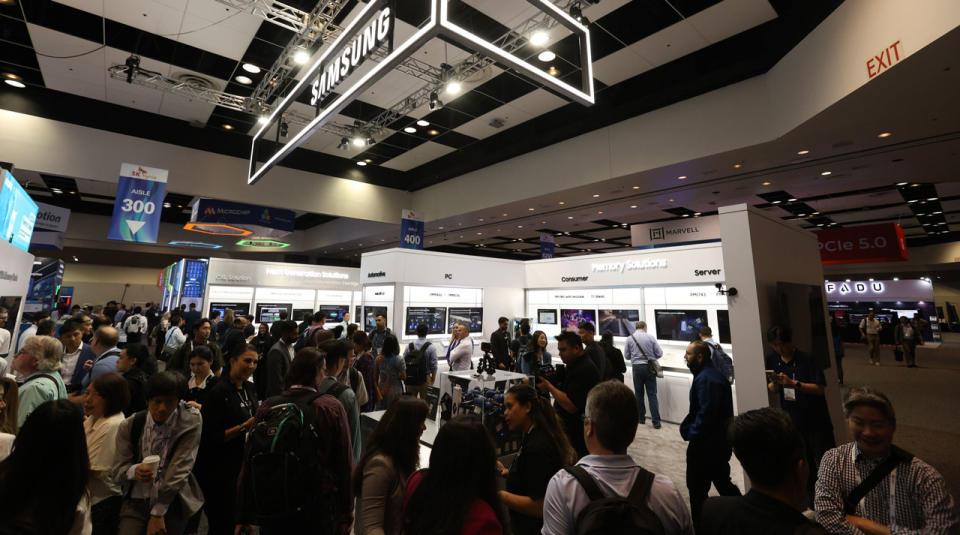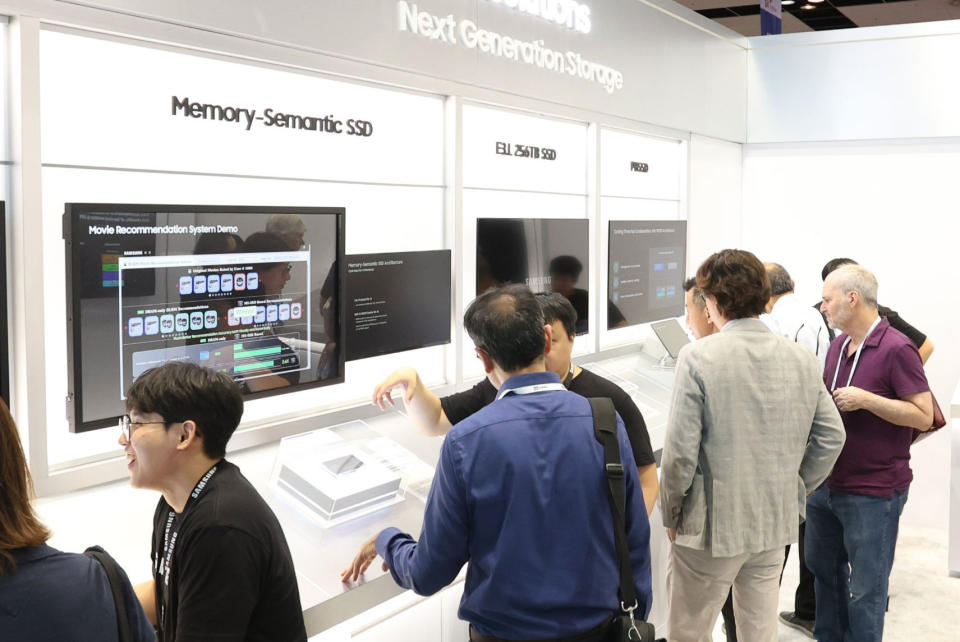Samsung Announces 256TB SSDs and Unveils Peta-Byte Scale PBSSDs

Samsung is at the Flash Memory Summit in California, showing off its latest wares, announcing breakthrough technologies, and discussing some incredible advances. Samsung is often the source of the biggest news stories of these events, and it hasn’t disappointed with its announcement of both a 256TB SSDs and unveiling of its PBSSD architecture, designed for peta-byte scale solutions.
The Samsung presentation at the FMS 203 was all about “How Memory Innovations Shape Products and Services”. And, you guessed it, everything was being framed in the context of being reimagined for “the AI era.” Never worry, as Samsung is here to develop the latest technologies to cope with the “exponential growth of data and its many applications,” attendees were told.

PM1743 With PCIe 5.0
Samsung started by highlighting its PM1743 server SSD, which was first unveiled at FMS last year. This comes in capacities of up to 15.36 TB, has been enhanced with a PCIe 5.0 interface. The interface revamp means the new drive is capable of “achieving twice the power efficiency of its predecessor,” says Samsung. The first users of the new PM1743 have it earmarked for usage in the field of generative AI, such as with ChatGPT, according to Samsung.
The development of the PM9D3a server SSD in standard 2.5-inch form factor with PCIe 5.0 is also complete, said the tech giant. With its 8-channel controller, this drive will be up to 2.3 times faster than its predecessor, the company claimed. The new PM93a will become available up to 15.36 TB first, with models up to 30.72 TB in H1 2024.
256TB SSDs
In the quest for maximum data storage within the power and volume limits of a single-server rack, Samsung has created a 256TB SSD. It says that the new devices wield QLC NAND and the highest level of integration density to create these devices.
In Samsung’s tests, the 256TB SSD consumed seven times less power than a stack of eight 32TB SSDs (reminder, 8x32=256).

Petabyte Scale PBSSD
Last but certainly not least, Samsung showcased its latest PBSSD architecture at the Summit. It says that this takes the form of a “petabyte-scale ultra-high capacity solution that provides high scalability by varying the capacity depending on the application.”
With such a great capacity in a single device, Samsung and partners like Meta are aiming to make PBSSDs multi-user friendly. It says the platform made use of a technology called Flexible Data Placement (FDP), which has been ratified in NVMe. FDP is a way of optimizing data placement for increased predictability and performance in real-world hyperscale workloads. The software behind FDP is completely open source.
We hope some of this super-capacious flash memory tech is going to trickle down to consumers. Shoppers still find it difficult to find readily available PC SSDs in sizes larger than 4TB.

